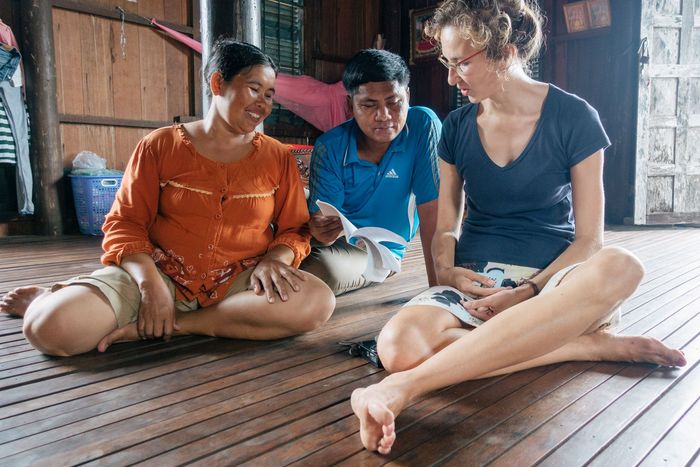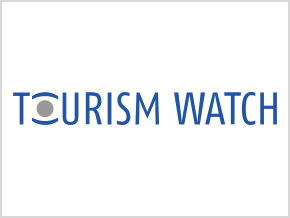Today, international online travel agents (OTAs) dominate the travel industry, all with highly integrated platforms and heavy investments in online marketing and search engine optimisation. Hotel owners just add room descriptions and photos, connect to their booking system and take bookings. However, for a community running a home stay in a village, this one-size-fits-all approach does not work
The vast majority of locally run community based tourism initiatives do not have the necessary skills, knowledge and conceptual understanding of the digital revolution taking over the tourism industry. The digital gap is gigantic. Holistic, innovative solutions are needed to bring local community-based tourism (CBT) projects online and support them to stay online.
Currently, the most common approach is to use donor funding to hire media or marketing experts, web developers and content writers to build a website that nobody from the community knows how to manage or update, or how to respond to visitor queries. Communities may not even understand the reason why they need the website at all. After the initial projects end, the websites are left unmanaged. They are not updated, which results in frustrated visitors who try to use outdated websites to plan their holidays.
Bridging the gap
‘Impact Explorer Cambodia’ fills the gap between the digital world of visitors from developed countries and the ‘analogue’ world of rural communities in Cambodia. It is an online marketplace that brings community based tourism projects and ecotourism initiatives online. By doing so, it offers more sustainable choices to international visitors.
Over the past three years, we have been faced with the challenges community-based tourism projects have to overcome in order to go online and stay online, and have developed some solutions with them.
Lack of digital literacy
Even though most Cambodians own a mobile phone, and the vast majority of people have some access to the internet, this is far from having full access to digital information. Their main barrier was to understand “how” information exists on the internet and how people interact with it. For most Cambodians, Facebook “is” the internet. If Google is used, many Cambodian internet users cannot identify the most relevant information they are searching for. Therefore, the project members did not understand the ways in which travellers sitting at home search for places to visit and then book a holiday. Up-to-date and relevant information is not a reality for most people in Cambodia in their everyday lives. To overcome this challenge, we keep in regular contact with communities and poll them for essential information changes as part of everyday conversation.
Most Cambodians use Facebook as their main communication tool, via messenger and Facebook voice calls. Using online booking forms or emails is simply not feasible. How is someone with poor literacy levels going to read your message? The risk of misunderstanding is far too high. Old-fashioned phone calls, Facebook calls or recorded voice messages are the most common way for us to communicate booking information with the CBT projects.
Different perspectives
Language is a major issue in content generation, but not the biggest one. Great content can be translated and great photos do not need any words. However, some ideas and concepts do not cross cultures. Most local CBT members and even local NGO staff struggle to identify stories international visitors are interested in reading. Similarly, in choosing photographs that would make them want to make a booking. It is not a language issue but a different point of view. Without investment in creating unique, high quality content you might end up with text resembling an instruction manual for your washing machine, not compelling content for your website.
Building trust
Online payments are a complex issue in most developing countries, many with low penetration of the full range of payment options seen in developed countries. And there are other complexities at play – such as trust that the community will receive their money. Initially, many of the villagers wanted to receive their money in cash – payment on arrival by tourists and so we started with a cash-based system, in order for the community to build trust. Shortly afterwards we moved to online and digital payments. As soon as communities understood the process, we introduced further benefits by guaranteeing income in cases of no show by tourists by taking payment by card at the time of booking.
After three years of experience with 45 CBT projects in Cambodia being online and taking card-based bookings, it is important to highlight that the process is not easy or cheap. CBT projects currently do not have the skills and technology understanding to “jump” online. Most NGOs or government departments of tourism do not have the in-depth understanding of marketing and e-commerce to support the CBT projects. The only way communities can be brought online is through truly collaborative community-private sector-civil society partnerships with support from a visionary funder who understands the benefits of investing in technology and marketing for community development.
Jitka Markova is the country director for Conscious Tourism Cambodia and co-founder of Impact Explorer Cambodia.



